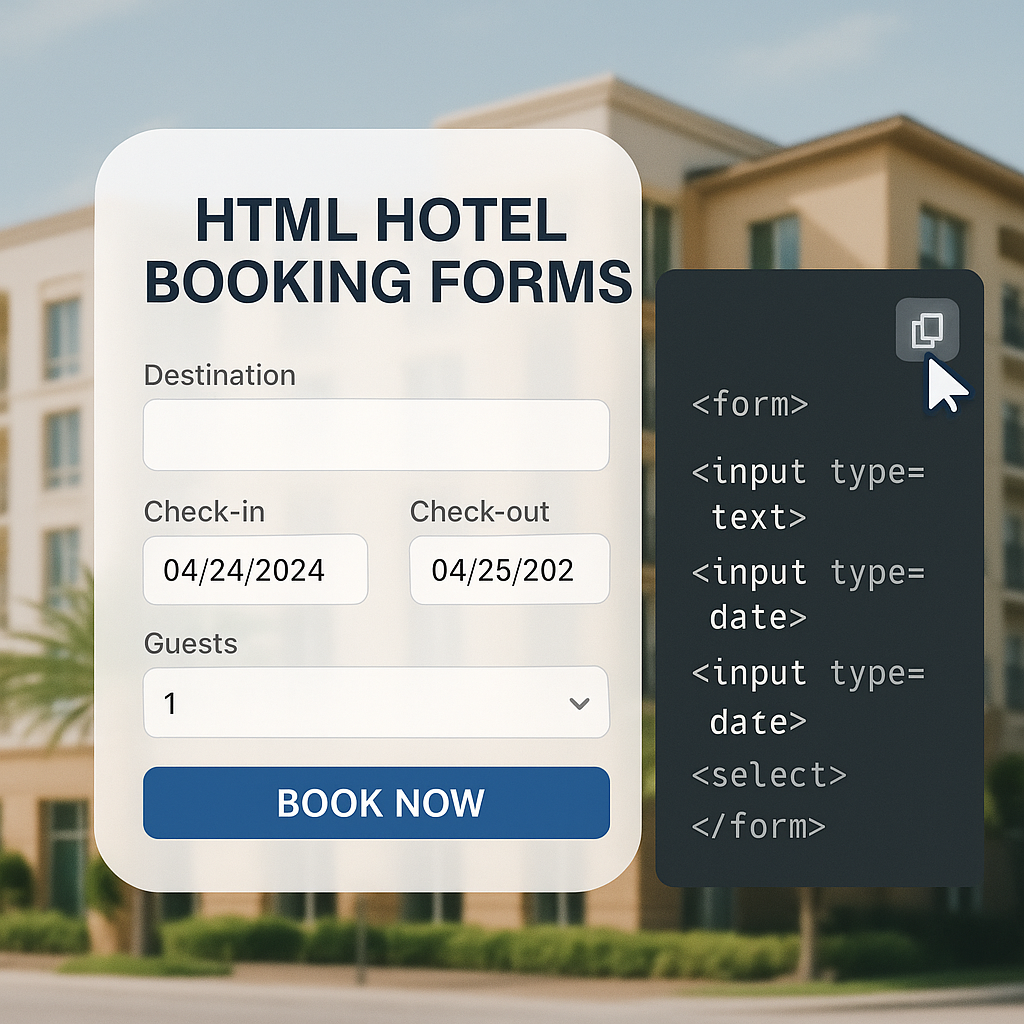When are housing stipends taxable, and how do they work?

When you send your crew out of state, the housing costs hit your books, and Finance has no idea if they’re in the clear until the receipts show up weeks later.
Per diem violations turn into taxable benefits. Missing paperwork means the IRS sees the whole thing as employee income. Project codes get assigned in January for trips that happened in October.
The difference between a taxable stipend and non-taxable housing comes down to three IRS conditions, and it's all about how you set it up.
Do Employees Owe Tax On Employer-Provided Housing?
Generally, housing stipends are almost always taxable. The IRS sees them as regular wages, and they’re subject to the same withholding. However, there is one exception for employer-provided housing.
IRS Publication 15-B lays out three conditions for a non-taxable status. You need to meet all three. Miss one, and the whole amount becomes taxable.
- Housing must sit on business premises: Remote work sites, man camps, and temporary project sites only count if the lodging is right on or next to where the work is being done.
- Lodging must serve the employer's convenience: You need a solid business reason for providing the housing, not just giving extra pay. The housing has to be necessary for the employee to do their job.
- Employees must accept housing as a condition of employment. The company has to require them to live on-site to do their job right.
Most project-based business travel doesn't meet these conditions.
Does Your Crew Housing Meet the Criteria?
Your field techs work from a hotel five miles from the job site? That's not "on business premises." They could technically do their jobs without living at that specific hotel? That fails the "condition of employment" test.
But let’s say your crew is on an offshore oil rig. The crew quarters sit directly on the platform, 50 miles from shore. There's no commuting home because the workplace is in the middle of the Gulf of Mexico.
The company needs workers on-site 24/7 for emergency response and equipment monitoring. Living on the rig isn't a perk; it's a requirement. Employees must accept the quarters as a condition of employment because the job can't be done any other way. The value of those quarters, meals, and facilities? Non-taxable.
What’s the Real Cost of Taxable Housing Stipends?
When you give a stipend instead of paying for the housing directly, you could create a whole mess of tax problems that cut into what your employees actually get.
The W-2 Problem
Your housing didn't pass the three-condition test? Now Finance has a W-2 problem.
The full fair market value goes on the employee's W-2 form: Box 1 for wages, Box 3 for Social Security, and Box 5 for Medicare. The entire amount.
This triggers federal income tax withholding at 2025 progressive rates, plus Social Security tax at 6.2% (up to the $176,100 wage base) and Medicare tax at 1.45%. Your employee's tax burden depends on their bracket, not a flat rate.
Here's what this looks like in practice:
You're paying out $24,000, but your employees only get to keep $16,884. That's 30% of the money lost to taxes. You're paying full price but only delivering 70% of the value. When your CFO finds out about that kind of waste, they'll be looking for a new plan, fast.
Why Scattered Housing Bookings Create Tax Complications
When your crew books on a bunch of different sites, Finance loses track the second they click "confirm." You won’t know which bookings went over per diem until the receipts show up weeks later.
The tax problems pile up:
- Overspending becomes a taxable benefit: Every platform has its own paperwork, making it a nightmare to prove it was a business expense.
- Missing receipts kill IRS compliance: You can't prove the housing met IRS conditions if you don’t have the documentation.
- You get hit twice: The crew pays out of pocket, so you have to process a reimbursement, and then you have to make W-2 adjustments.
- Project codes are a guess: Finance wastes hours trying to match up scattered bills to figure out what’s taxable and what’s not.
Your crew books a $150 room when the per diem is $125. That's $25 a night in unexpected taxable income. You'll only find out about this during tax prep when you can't fix it.
Scattered bookings hide per diem violations until it's too late. You can't enforce compliance if you don't see the costs until after the trip. Finance can't allocate expenses right without the paperwork. Your employees get a surprise tax bill for overspending that no one knew about.
Direct company payment (where your business pays the hotel directly rather than reimbursing employees) gets rid of this entire problem. No W-2 mess, no surprise tax bill for the employee, and you get the full value for your money while giving Finance better control over costs.
Engine's Direct Bill solution captures every booking and automatically tags it with the right project code. Custom fields attach job numbers, client names, and cost centers directly to each booking. You can export financial data that's already tagged and ready to go.
How to Report Housing Stipends for Tax Compliance
If a housing stipend doesn't meet the IRS rules for being non-taxable, you have to report it correctly. Put the fair market value on the employee's W-2: Box 1 for wages, Box 3 for Social Security, and Box 5 for Medicare.
Determine the fair market value by getting appraisals, talking to realtors, or looking at similar properties in the area. If employees pay for part of the cost, subtract that from the amount you report.
If you don't list the stipend on their pay stub, you have to tell your crew about it so they can plan appropriately for tax season. A surprise tax bill hurts morale and makes it harder to keep good staff.
If you miss these W-2 adjustments, the IRS will hit you with penalties for withholding incorrectly. If you report the value wrong, you're looking at more paperwork, complaints from your crew, and a red flag for an audit.
3 Ways to Structure Housing Benefits and Minimize Tax Complications
You structure housing arrangements so you don't hand the tax problem to your employees and you still keep control over the costs.
1. Pay Providers Directly
The company pays lodging providers directly rather than giving employees stipends.
Benefits:
- No out-of-pocket expenses for the crew and no reimbursement paperwork for you
- Gets rid of the W-2 complications
- Finance controls per diem compliance before the money is even spent
- No tax burden gets passed to your crew
Engine's Direct Bill handles all housing costs on a single, monthly invoice. Your company gets billed directly. Your crew never pays out of pocket, never has to submit a receipt, and never waits for a reimbursement.
Finance gets one statement for every trip with automatic project-level allocation. No receipt hunting. No mess. Just clean data that shows exactly where every dollar went.
2. Enforce Per Diem Limits at Booking
Build the rules right into the booking process.
Benefits:
- The system stops out-of-policy bookings before they happen
- You see in real time if your crews are staying within the per diem limits
- You won't discover policy violations months later when it's too late
Engine builds rate controls directly into the booking flow to stop per diem violations that would trigger taxable income.
Set spending caps by location: lower rates for normal cities and higher limits for expensive places. You can structure these as flat rates, tiered rates that allow for more expensive options when inventory is limited, or location-specific caps.
3. Consolidated Monthly Invoicing
All housing costs flow through one statement.
Benefits:
- One invoice for every trip, automatically tagged with project codes
- Audit-ready paperwork that proves the business purpose for each booking
- No chasing dozens of receipts to justify expenses
- You can easily separate compliant from non-compliant spending for tax reporting
The data from Engine's custom field follows each reservation all the way to your financial reports. Finance gets data that's already organized by project; no manual allocation or guessing which trips belong to which jobs.
Prepare Your Finance Team for Tax Season in 90 Days
Your 90-day tax compliance system starts with pulling housing data well before filing deadlines hit. Without this paperwork, you can't defend yourself during an audit. The IRS will assume the entire amount is taxable unless you can prove otherwise. Your employees will get a higher tax bill, and your company will get hit with penalties for incorrect withholding.
90 Days Before Filing (October for Q4)
Pull all Q4 housing bookings. Flag any stays that went over the per diem limits. These are the ones that need to be reported as taxable income on a W-2. Run the numbers: fair market value minus what the employee paid is the taxable amount.
60 Days Out (November)
Verify every booking has project code allocation and business purpose paperwork. IRS audits want proof that housing served employer's convenience. Export your financial data now. Don't wait until January when you're dealing with everything else.
30 Days Out (December)
Calculate W-2 adjustments for any taxable housing benefits. Let the affected employees know before the end of the year so they can adjust their withholding if they need to. Make sure all the receipts are in your system. Missing documentation means the entire amount becomes taxable income.
Control Housing Costs Before Tax Season Arrives
Tax problems with housing happen because you lose visibility after a booking is made. The same pattern repeats every time: scattered bookings, lost receipts, per diem violations found months later, W-2 adjustments, surprised employees, and a mess for Finance to clean up.
Project-based companies need a system that enforces per diem rules at the time of booking. Direct company payment eliminates employee tax headaches and out-of-pocket expenses entirely. One consolidated monthly invoice with project-level tagging gives Finance audit-ready data. At tax time, you just export the audit-ready paperwork.
Engine provides policy enforcement, guaranteed rates, and 24/7 support for over 1 million business travelers managing project housing for construction, field services, energy, and manufacturing.
Ready to stop chasing receipts? See how Engine helps you take total control over your travel spending.

FAQs
Can I exclude housing benefits from W-2 reporting if employees work remotely at a project site for less than one year?
The temporary nature of the assignment doesn't change the IRS requirements. Housing must still be on business premises, for the employer's convenience, and required as a condition of employment. If employees can perform their work from off-site housing, the IRS typically treats the benefit as taxable compensation regardless of assignment duration.
What documentation should I keep if the IRS audits our housing arrangements?
Maintain written policies proving housing was required for business operations, signed employee acknowledgments accepting on-site housing as a condition of employment, and contemporaneous records showing the business necessity for each arrangement. Without these documents, the IRS will likely reclassify the entire benefit as taxable wages.
Do housing stipends paid through payroll avoid the three-condition test if I withhold taxes upfront?
No. Withholding taxes on stipends doesn't exempt you from proving the housing meets IRS non-taxable conditions if you want to claim the exclusion. Voluntary withholding just means you're treating it as taxable income from the start, which may be the safer approach when the three conditions aren't clearly met.




.jpg)




.jpg)























.avif)



